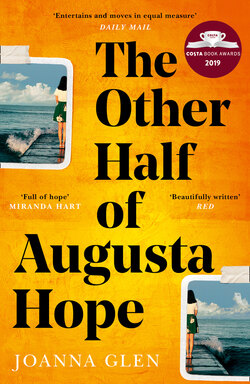Читать книгу The Other Half of Augusta Hope - Joanna Glen - Страница 8
Parfait
ОглавлениеMy mother was called Aurore, which means dawn.
And my motherland, still waiting for its dawn, is called Burundi.
Burundi carries its poetry in the hummingbirds drinking from the purple throats of flowers, the leaves glistening green after a night of rain; in the cichlid fish which flash like jewels deep beneath the surface of Lake Tanganyika, where crocodiles slumber like logs, still and deceptive, and hippos paddle downriver, in a line.
It carries its spirit in the dignified faces of all who are willing to forgive in the belief that Burundi will one day be beautiful again.
Dignified faces like my father’s.
I was his first son, and he prayed that by the time I was grown, we’d be living in peace.
‘You were born smiling,’ he told me. ‘And you were so perfect. Everything we’d ever dreamt of.’
‘So we called you Parfait,’ said my mother.
‘Parfait Nduwimana,’ said my father (which means I’m in God’s hands).
‘You were the most beautiful baby,’ said my mother ‘with those little dimples in your cheeks.’
‘Why would dimples be beautiful?’ I said.
‘Just because!’ she answered, hopping over to me on her wiry legs, and stroking my left-hand dimple with her right hand.
She reminded me of a bird, my mother.
I loved to spot birds when I was out and about: the hoopoe, or the Malachite kingfisher, or my favourite, the Fischer’s lovebird – a little rainbow-feathered parrot which used to bathe in the stream up above our homestead.
‘That bird is so …’ I said.
And my father said, ‘Unnecessary.’
Which I suppose is what beauty is.
Yet later I found I couldn’t live without it.
Then my father said, ‘Unnecessarily extravagant.’
I said, ‘What’s extravagant?’
He said, ‘This is,’ turning in a circle and pointing all around him, at the sky and the trees and the water running, clear, over the pebbles.
My family went on washing in the stream, like the birds.
There were nine of us in the beginning.
The girl twins: Gloria and Douce, who liked to dress up in the shiny bridesmaid dresses brought down the hill by the Baptists in plastic sacks.
The boy twins: Wilfred, named after an English missionary who lived (and died) on our colline, and Claude, named after a French one.
Pierre was strong and stubborn, and you couldn’t tell what he was thinking.
Zion was the baby, and you could. Even from when he was tiny, he wore his heart on his sleeve, as they say in English.
My father’s face always had a glow about it as if he had a candle inside him, shining light through his eyes. I see his smile, so wide it seemed to reach from one earlobe to the other, and I hear his laughter, bubbling up from some mysterious source inside him. I see his fingers sculpting a whistle from a stick, or fashioning a football for us out of coconut and twine.
I feel my mother’s arms around me, the slight damp of her armpits on my shoulders, the warmth of my cheek against her soft chest and the deep shiver of belonging running down my spine to the soles of my feet.
All of us would sit around the fire, the twin girls singing; the twin boys tied together at the ankle and refusing to separate; Pierre quiet and brooding; the baby in my mother’s arms, with something still of heaven about him.
‘We’ll call him Zion,’ said my father, as my mother pushed him out between her legs to the sound of gunfire in the homestead on the left.
The women tied the umbilical cord into his navel.
‘Yes, Zion!’ said my father. ‘And we’ll all keep dreaming of the city that is to come!’
